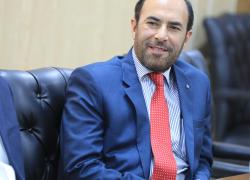Appointment of Zartaj Gul’s sister: A test case for the PTI Government
The saga of appointment of Shabnum Gul, the sister of Zartaj Gul, Minister of State for Climate Change, as Director National Counter Terrorism Authority received unprecedented media attention. The entire blizzard was mostly due to the effective role of the social media for its unbridled sharing of information and partly due to the pressure from opposition parties. Nevertheless, some degree of decency, ethics and morality believed to prevail in the PTI top leadership who took due cognizance of the matter. The issue, too, became the talk of the town, instantly, when the Prime Minister took personal note to that effect and his Special Assistant, Naeemul Haque tweeted the other day that no one in the PTI camp can use his/her position in power for the promotion of their kith and kin.
Tempest on the social media
My latest Google search with keywords, “appointment of Zartaj Gul sister” produced some 2,51,000 results in 0.40 seconds with the majority of the entries spewing venom against the PTI Government. Besides, the social media has blown-out the matter out of proportion with the exception of just one lady defending the legitimacy and authenticity of the case with unending vitality and undiminished energy and that is the incumbent Minister of State for Climate Change.
Without having any first-hand information, initially, about the case, the first post I read on Facebook was that “a Matriculate lady has been appointed by the PTI Government as the Director…”. Another user tried to counterbalance the thread, “pure nonsense!!!!!., she is not a matriculate, in fact, she is a Lecturer…”. Another user posted that “the sister of Zartaj Gul was appointed by Imran Khan on the prized post to gratify the Minster”. Defying all existing ground realities altogether, such poppycock inundated the social media with impunity since long. The blog post, ” Role of social media: A dangerous game of misinformation“ has taken up this issue at length. Apart from this wish-wash, the latest furor on the local landscape, the issue bears serious political, technical and professional implications for the PTI leadership.
Implications
- Political implications
This is essentially a test case for the ten month old PTI Government. If handled amateurishly and unprofessionally, it will have serious repercussions for the Government in the days to come. In our particular cultural context, this seems not to be a big deal for the people at the helm of affairs but certainly, such a scenario cannot be imagined in the more gracious, progressive and accountable societies. It will definitely reverberate in the power corridors for the rest of its life as a classic case of nepotism, abuse of power and inexplicability on the part of the PTI leadership.
- HR implications
This also signifies the sensitivity of the matter depicting deep-rooted systemic lacunas in the overall system of administration in the key public sector organizations in the country. It also brought home some important lessons in terms of pathetic human resource management practices in the country. Over the years, what I personally experienced, the mechanism of acquiring services of officers under the Deputation Policy of the government has always been subjected to a large-scale misuse, political wrangling and influential manoeuvring.
The grievous public backlash, in the instant case, reflects that the time has fastly been approaching to an end for the politicians to have their family friends, relatives and supporters of their own choice appointed and adjusted against the prized positions in the government. Secondly, the realization of some degree of transparency, accountability, openness, meritocracy and fairness are finally making inroads in the overall system of governance including human resource management practices in the country and it is getting cumbersome for the few powerful individuals to hijack the system.
It was the PTI government that embarked upon the agenda of introducing institutional reforms in the Khyber Pakhtunkhwa by introducing HR systems in various public sector institutions which resulted in remarkable success; nevertheless, it is yet to be adopted at the national level to generate the desired results.
The price of excessive political interference
Looking retrospectively at the chequered history of political meddling and excessive abuse of power in our context, during the previous successive governments, it is on the record that the Vice Chancellors of all most all public sector universities were appointed from amongst the dire hard associates and staunch supporters of the political party in power and in another classic case of political interloping, the appointments against key executive positions were made on the behest of a political party which was in alliance with the ruling party at the time and without its strong support it would not have been possible for the government to survive.
The said political party in alliance used the government’s Achilles’ heel to its best and got its people adjusted against key positions in various public sector bodies. As an offshoot, it not only degenerated the public sector institutions but also fired back as those political parties were whitewashed in the subsequent elections which clearly testified to the fact that it is not the blatant abuse of power but merit-based decisions making that ultimately pays-off.
Reaction from the Government
In fact, the Prime Minister has expressed his unequivocal frustration at the happing. Apart from this, he has shown his displeasure at least verbally during a recent cabinet meeting reportedly admonishing the Minister that she should not have done it. This also resulted in the withdrawal of the controversial letter issued by the Federal Minister. However, it is widely believed that it was not enough to set the things right.
A way out
For a short term solution, the government should constitute an independent high powered inquiry committee to probe into the matter. If the appointment was proved to be made due to political reasons then the State Minister must resign. For the long term, the government should introduce broad-based reforms in the human resource management systems in the public sector entities to address such issues in the future
Conclusion
The credibility of the PTI government is at stake as it has been done more damage by own parliamentarians and the party elected members rather than the opposition parties. Most of them were elected on the PTI platform and only in the name of Imran Khan, otherwise, they would have faced humiliation in the election as was happened in the case of Ex- MNA and the PTI stalwart Ayesha Gulalai Wazir. The phone call by the Federal Minister followed by a cover letter issued from her august office cannot be justified. This might seem plain and simple. But in fact, it is not as simple as it looks likes and shall harbinger serious repercussions for the government in the days to come.


















